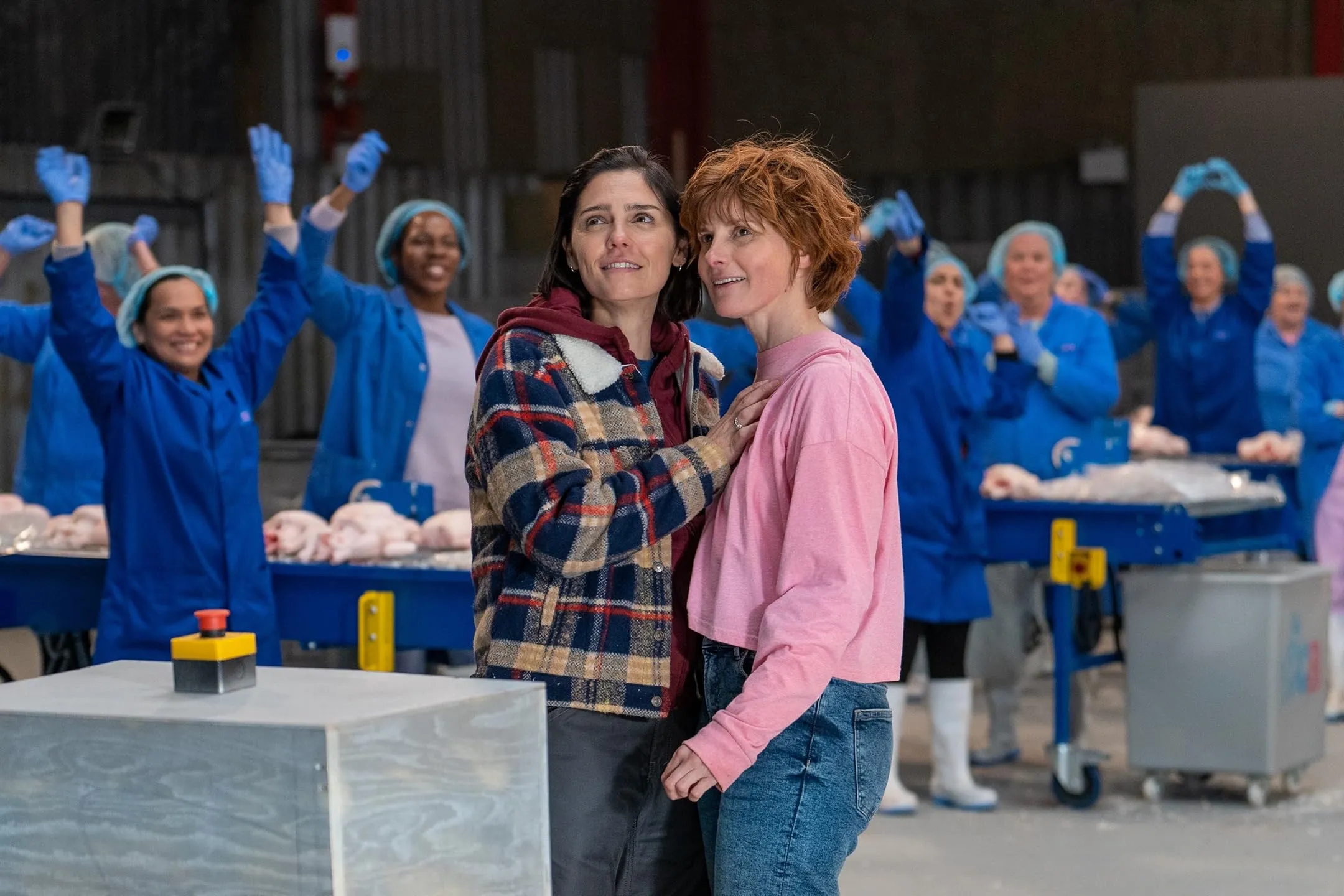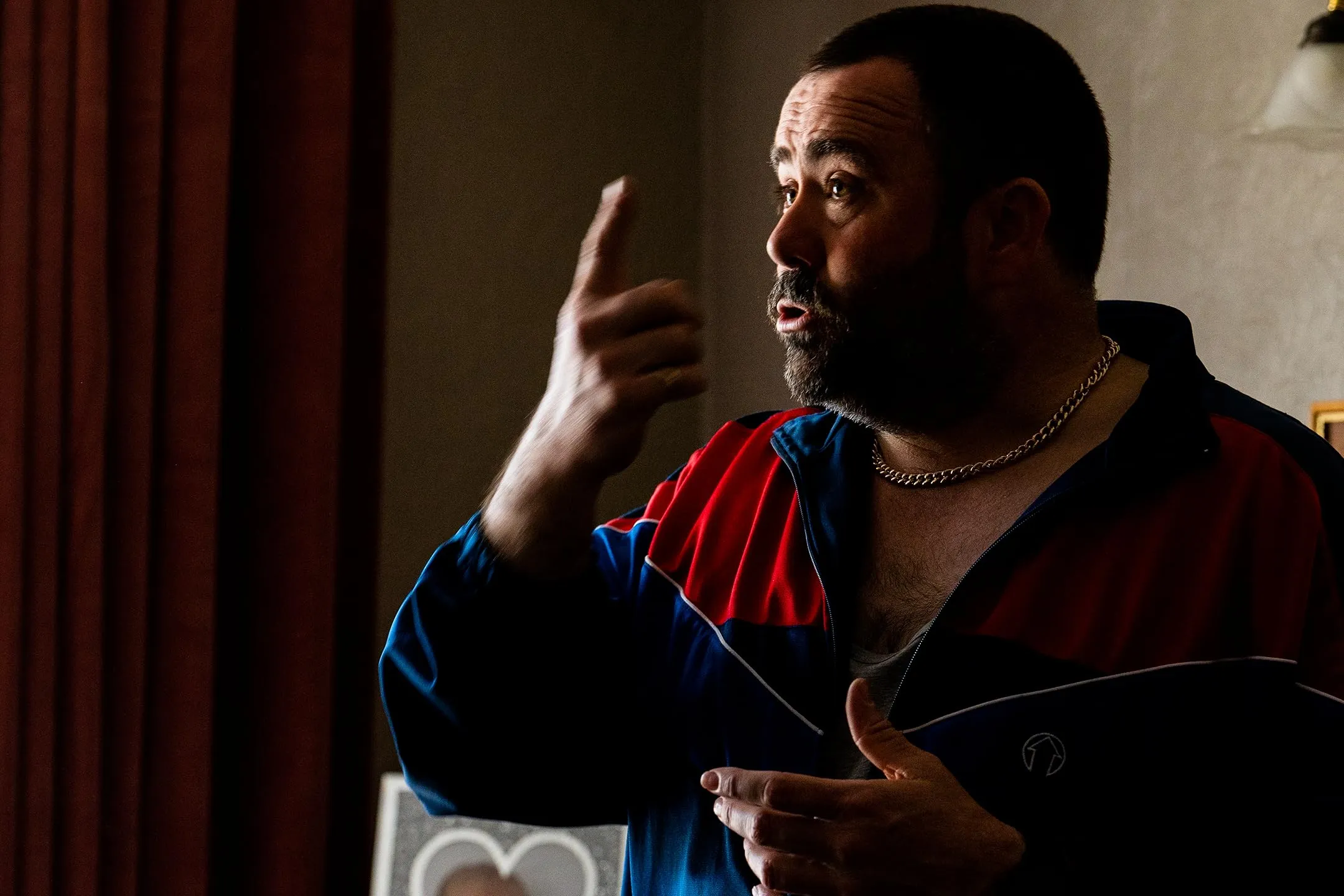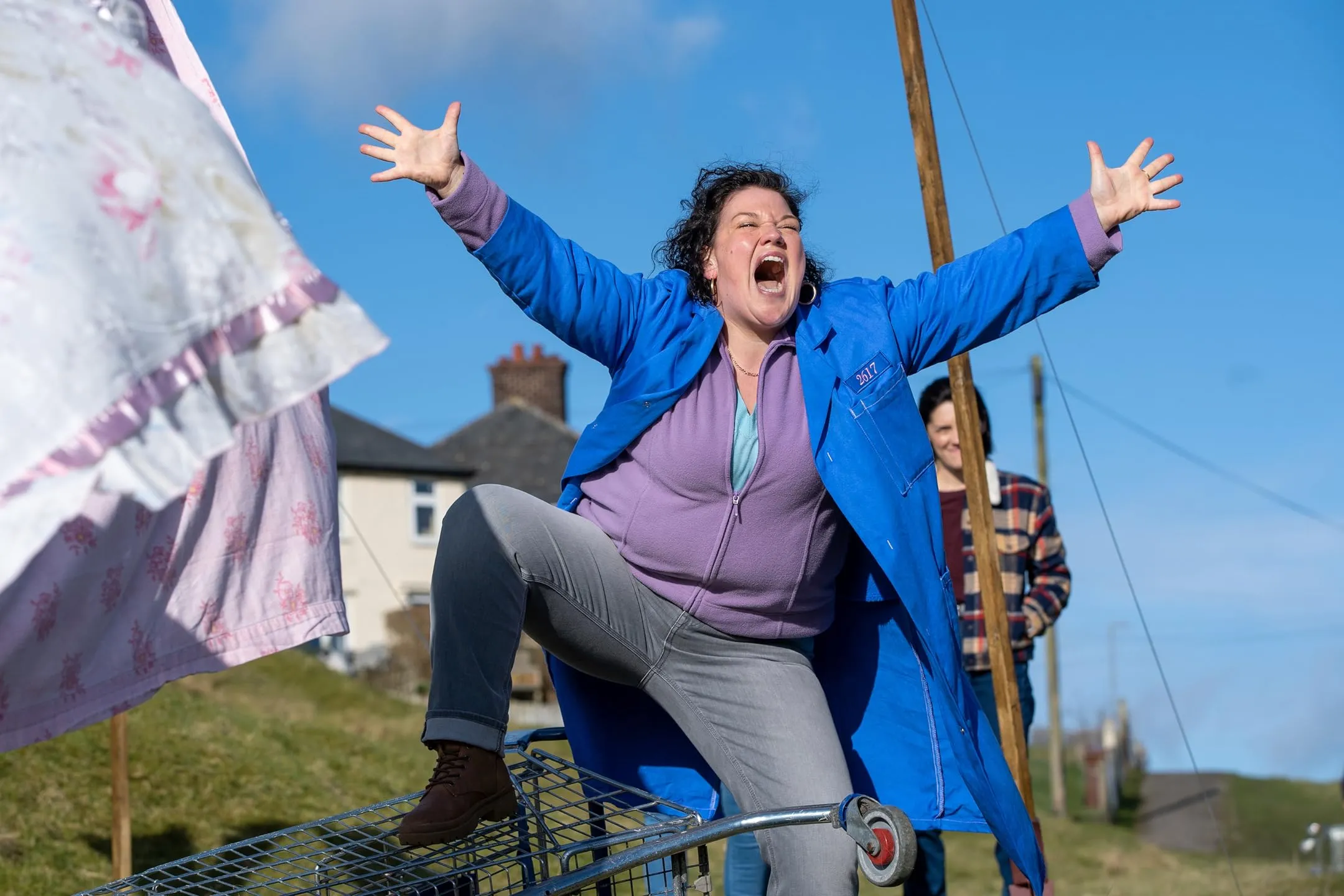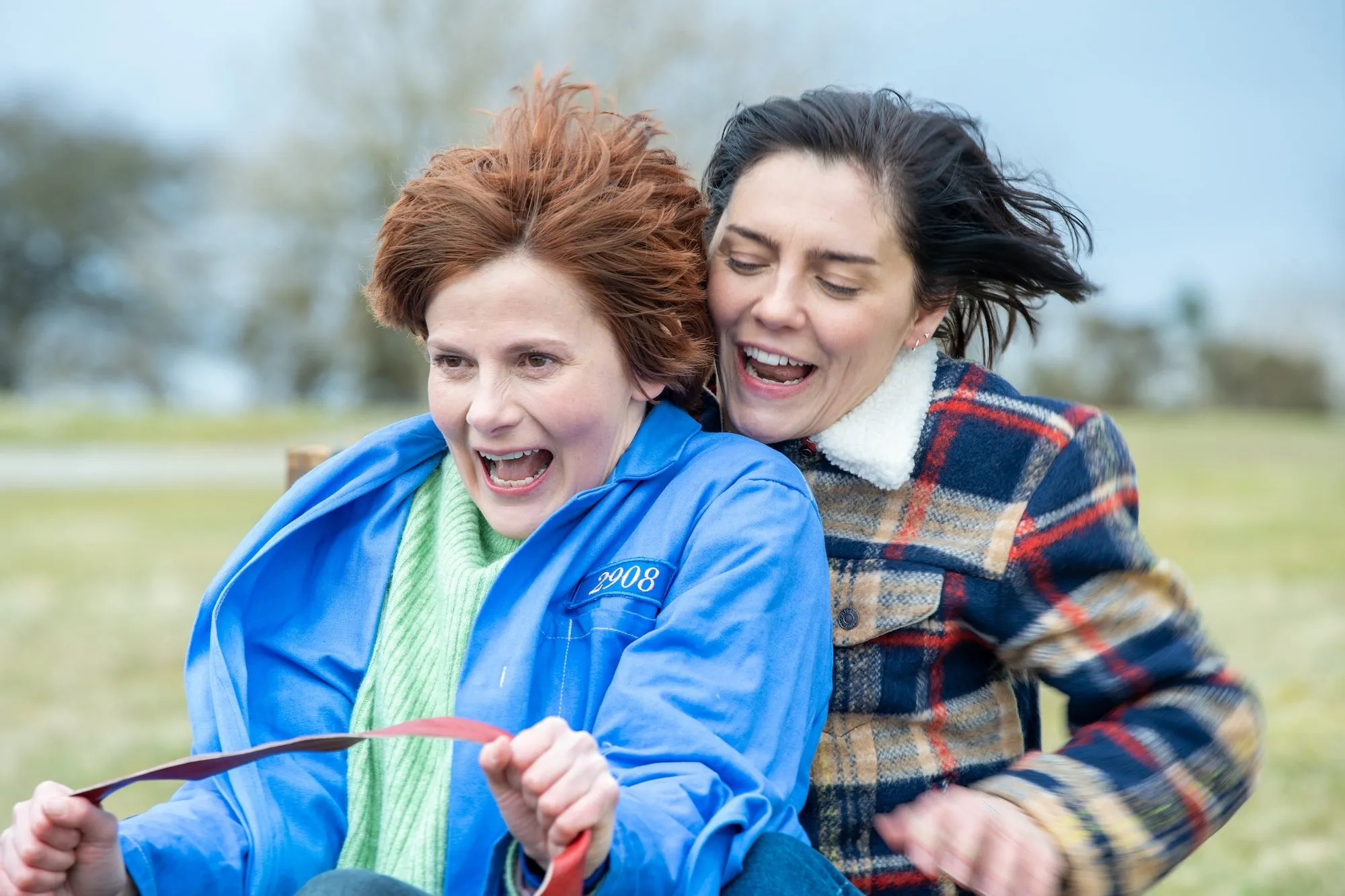Janis Pugh’s debut feature Chuck Chuck Baby wastes no time in establishing itself as a non-conformist. Behind the camera is Pugh, taking on directing and writing duties, crafting an intimate story of self-discovery. She brings together a talented pair of leads in Louise Brealey and Annabel Scholey. Brealey plays Helen, living an unfulfilling life in small-town Wales until the return of her old neighbor Joanne, played by Scholey, rekindles long-buried feelings.
Pugh breathes new life into familiar tropes of romance and musicals. Rather than rigidly sticking to formula, she allows her characters’ emotions to shine through in creative ways. Scenes transform delightfully as they passionately lip-sync classic tunes that reflect their feelings.
Pugh also crosses genres with ease, infusing drama, comedy, and coming-of-age themes into a heartfelt LGBTQ love story. While touching on universal ideas of empowerment and acceptance, the intimate portrayals feel refreshingly genuine.
From the outset, Pugh displays a rebellious spirit that makes Chuck Chuck Baby much more than the sum of its inspirations. Without sacrificing depth or craft, she embraces freedom from standard templates to truly listen to her characters and craft a tale that stays with you.
A Love Rekindled
We’re introduced to Helen, living an unfulfilling life in small-town Wales. She works long hours at the local chicken plant, yet finds support from her lively co-workers. However, her home life is deeply unhappy. Helen stays with her ex, Gary, caring for his ill mother while he parades his new girlfriend around. It’s clear she longs for more.
Enter Joanne, Helen’s old neighbor who returns after years away. The two shared a secret connection as teens but feared addressing their true feelings. Now, adults, those old flames rekindle between them. Yet Joanne seems confident where Helen remains timid, holding herself back from opportunity.
As their rapport grows, we learn both women endured difficult pasts. Though opposites on the surface, they recognize pieces of themselves in the other. Joanne helps Helen rediscover her adventurous spirit, easing her out of the shell she’s retreated into. But major obstacles stand in their path.
Helen struggles with embracing change and her budding queerness, holding onto routine as security. Meanwhile, disapproval from others unleashes Joanne’s painful history. Through it, their bond deepens as each woman supports the other through personal demons.
While external forces work to keep them apart, Helen and Joanne’s relationship shakes loose the roots of stagnation. Facing fears and accepting love, they empower one another to break free and seize the happiness waiting long denied. Their story speaks to the power people find together going through life’s ups and downs.
A Feel-Good Film with Feeling
Janis Pugh revels in creative visuals and sounds. Scenes burst with vivid color on screen, from the lush Welsh countryside to feathery factories. Yet closer observation shows stylish shots don’t distract from real, lived-in environments.
Characters express themselves through iconic tunes that feel plucked from their souls. Helen pours anguish into Neil Diamond while Joanne finds freedom through Janis Ian. More than backdrop, music amplifies emotions in a way dialog never could. Moments resonate with you long after credits roll.
Pugh seamlessly incorporates song into lived experiences. Her characters don’t so much perform as they naturally give voice. Subtle, emotive choreography brings performances to life without distracting from authentic feelings. Music here acts as the ultimate dialogue.
Clever camerawork finds poetry in mundane spaces. Simple close-ups speak volumes, whether catching unguarded smiles or bittersweet goodbyes. Sweeping landscape shots convey isolation, easing to possibility as love takes root. Visual and aural work in tandem to immerse us.
Tonally, Pugh cracks smiles while maintaining tender undercurrents. Even the bleakest scenes glow with compassion. Her intimate yet sweeping style uplifts without ignoring reality’s shadows. Technical skill brings sincerity that lingers with viewers, conveying joy, pain, and hope in balanced measure through visual-musical symbiosis.
In Pugh’s capable hands, no detail feels unconsidered or out of place. Everything seamlessly enhances her story’s feel-good message: that where there is care, connection, and courage, beauty can emerge from life’s messiest patches.
Finding Yourself (and Each Other)
This film taps into profound themes we all wrestle with. Helen and Joanne battle oppression—from rigid expectations to past trauma. Pugh shows how easy it is to internalize mistreatment, remaining trapped by fear and self-loathing long after external sources fade.
Through their journey, we see conquering oppression requires accepting our authentic selves. Joanne rediscovers her vibrant spirit while Helen gains confidence to embrace change. With support from Gwen and each other, they cultivate self-love despite life’s cruelties.
Community also plays a role, for better or worse. While neighbors cling to prejudice, Helen finds acceptance among vibrant coworkers. They represent society slowly becoming more inclusive, where people can be wholly themselves unashamed.
But challenging oppression takes courage. Even as their bond strengthens, Joanne and Helen hesitantly face feelings buried for decades. With compassion, Pugh portrays coming-out and coming-of-age as lifelong processes, showing love’s power to help people transcend past limitations.
Ultimately, this is a hopeful film. It suggests that through supporting one another’s personal revolutions—big and small—we can overcome oppression together. By empowering characters to define happiness on their terms, Pugh advocates self-determination and resisting boxes others aim to constrain us within. With grace, Chuck Chuck Baby celebrates life’s infinite beauty becoming visible once our true selves are free.
Blossoming Bonds Among the Feathers
Louise Brealey and Annabel Scholey shine in this film. As Helen Brealey conveys a woman surrendering to a life without hope. Yet under the surface, a spark endured, waiting to be rekindled. Scholey matches her as assertive Joanne, whose rebel spirit masks private pains.
Together, an intimacy evolves, hesitant yet compelling. Time apart only heightened what was unsaid as teens. Learning to trust again, they discover mirrored struggles in each other. An unspoken alliance forms, empowering each to believe in happiness and themselves.
Helen finds unexpected family too. Cusack exemplifies her mother-in-law, Gwen, a bedrock of wisdom and compassion. Despite life’s cruelties, she nurtured Helen’s spirit when no one else would. Their bond, bittersweet in Gwen’s final days, reminds us of love’s resilience.
Even the workplace provided community. Helen’s coworkers could have come across as one-dimensional but emerge as a lively, authentic support system. Their camaraderie and mischief inject levity into dreary jobs and precarious lives, showing solidarity carries people through hardship.
Together, these multifaceted relationships breathe heart into the story. Where oppression weighs heavy, affection’s solace shines through, a testament to love conquering even the most rigid of walls society forces between its members.
A Finely Crafted Independent Film
Pugh’s deft writing ensures Chuck Chuck Baby’s heart remains front and center. Her natural direction style keeps audiences invested yet comfortable. Together, storytelling skills breathe life into timely themes through fully-formed characters.
Technically, quality shines through regardless of a likely limited budget. Authentic Welsh settings emerge thanks to on-location filming. Subtle costumes, like Helen’s worn work attire, feel authentically lived-in too.
Impressively, Pugh’s genre-blending works seamlessly. Musical pieces flow organically instead of jarringly interrupting reality. Skilled choreography amplifies intimate moments instead of distracting. Crossing boundaries, Pugh pushes conversations forward versus mimicking trends.
While independent, no rough edges undermine professionalism. Passionate crews compensate where funds fall short. Ultimately, Pugh proves commercial and art need not overlap exclusively. Commercial potential exists without compromising dignity or marginalized voices.
Chuck Chuck Baby stands as a testament to vision and talent overpowering lack—aand to love transcending life’s arbitrary barriers. No box constrains a story so gracefully, capturing universality within specificity. For that, Pugh’s debut merits the highest praise and eager anticipation for what’s yet to come.
A Heartfelt Debut Well Worth Celebrating
In Chuck Chuck Baby, Janis Pugh crafts an inspiring debut that stays with you. She brings vitality to familiar genres through fresh ideas and fully formed characters. Audiences connect with Helen and Joanne’s journey of self-discovery, empowered by community.
Themes like empowerment and acceptance resonate as these women conquer personal prisons. Pugh’s message is that through embracing our authentic selves and supporting each other along the way, we overcome oppression together.
Not without flaws, Pugh’s sincere storytelling and visual flair more than compensate. She breathes new life into a subgenre still finding its voice. Her innate understanding of the human condition shines through.
While independent, Pugh’s passion outweighs any budgetary limitations. She reminds us that quality emerges from within, not dollars alone. Her skills suggest exciting potential, hopefully supported to serve more marginalized voices.
Ultimately, Chuck Chuck Baby warms the heart while food for thought. Focus falls rightfully on its characters, relationships, and poignant tune rather than exploiting trends. For an inspiring debut of disarming charm, this film deserves celebration.
The Review
Chuck Chuck Baby
With empathetic storytelling and visual flair, Janis Pugh's Chuck Chuck Baby presents an impactful queer romance that will linger with viewers. Though not without flaws, Pugh's innate understanding of the human condition and passion for her characters shine through in this heartfelt directorial debut.
PROS
- Nuanced performances from Brealey and Scholey
- Empathetic portrayal of the characters' journeys
- Powerful use of music to enhance emotional moments
- Authentic Welsh setting and attention to small details
- Timely exploration of themes like acceptance and empowerment
- Heartfelt direction that prioritizes character over shock value
CONS
- Uneven pacing at times with some tonal inconsistencies
- Antagonists could have been developed more fully.
- Low budget occasionally shows with some production values.
- The plot may feel predictable for some genre-savvy viewers.





















































